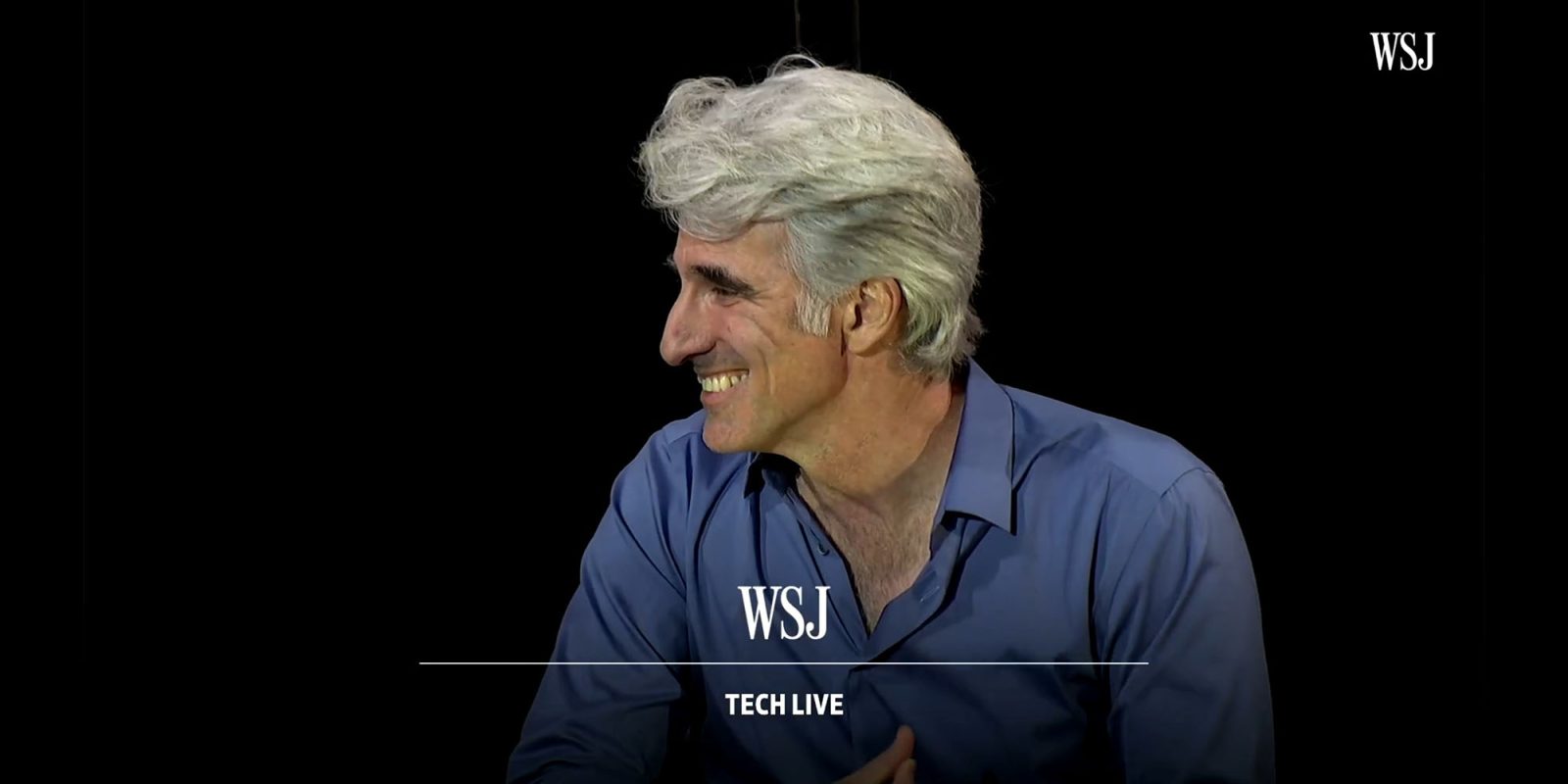
iMessage is a powerful messaging platform for iPhone users that changed the game for messaging, but over the years, it has also served as a lock-in tactic and even developed a prejudice between Android and iPhone users. In an interview this week, Apple’s Craig Federighi said that iMessage for Android would have been a “throwaway” effort that would have “held [Apple] back in innovating.”
Speaking to Joanna Stern during The Wall Street Journal‘s “Tech Live” event, Apple’s Craig Federighi and Greg Joswiak spoke regarding a number of topics including Apple’s future switch to USB-C and, for a brief moment, iMessage for Android.
Related: Greg Joswiak confirms that iPhone will be forced to comply with new EU regulation over USB-C
During the event, Joanna Stern brought up a 2013 email that surfaced during the Epic Games trial where Federighi said that producing an iMessage app for Android users would “simply serve to remove [an] obstacle to iPhone families giving their kids Android phones” to Apple’s Eddie Cue. In a further email on the topic, Apple’s Phil Schiller said that “iMessage amounts to serious lock-in.”
The messages have been regarded as pretty clear confirmation that the only reason iMessage for Android does not exist is that Apple wants the service to keep iPhone users on its platform.
When asked about the email, Federighi jokingly said that he was “not aware of [iMessage for Android] shipping” with a smirk, and went on to explain that the “whole email was clear” that the thought behind the email was a bit different than many have taken it as.
If we’re going to enter a market and go down the road of building an application, we have to be in it in a way that’s going to make a difference. That we would have a lot of customers that we would be able to deliver great experiences. This comes at a real cost. And, my fear was that we weren’t in a position to do that.
And so if we just shipped an app that really didn’t get critical mass on other platforms what it would have accomplished is that it would have held us back in innovating in all the ways we wanted to innovate in messages for our customers, and wouldn’t really have accomplished much at all in any other way.
And so, we just felt, pick where you can make a difference. Pick where you’re going to invest and do it where you make a difference and this seemed like a throwaway that wasn’t going to serve the world honestly.
This sentiment is mirrored in a further email where Federighi questioned how compelling iMessage for Android would be for users without many friends on iOS.
Top comment by Michael Williams
At the time in 2013, this train of thought seems quite valid. In 2022, iMessage is a dominant messaging platform that remains locked to a single ecosystem, and has produced a stigma when chatting with others while also holding back messaging as a whole.
At this point, it seems abundantly clear that iMessage will never come to Android. Google has been trying to improve the experience of messaging between iPhone and Android by pushing Apple to adopt RCS, a cross-platform messaging solution that is already in place on Android phones across the globe and offers many of the core improvements that iMessage delivers such as better resolution on photos and videos, typing indicators, reactions, and more. Apple has been mostly dismissive of RCS so far, with Tim Cook saying that there isn’t much demand from iPhone users.
Related: iOS should support RCS, but Apple has no incentive to make iMessage work with Android
You can watch the full interview with Federighi and Joswiak below.
More on Android:
- Google Messages starts rolling out iMessage reactions, but emoji translations are not quite 1:1
- Here are all of the times Google has tried, and failed to stick with an iMessage competitor
- Fearful of Google winning messaging, Apple executive argued for iMessage on Android in 2013
FTC: We use income earning auto affiliate links. More.




Comments